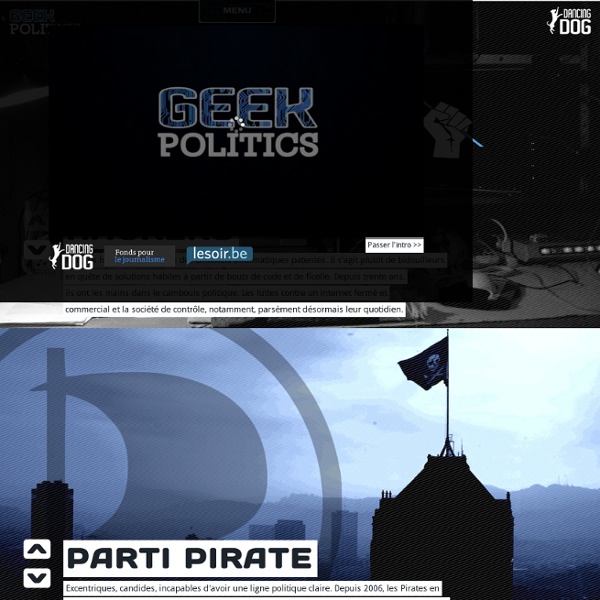



Category:P2P State Approaches This section will be further developed: Hilary Wainwright: Co-Creative Labor, Productive Democracy and the Partner State; a very important text to reset government policies for the p2p age. The 3 parts cover: 1 A value revolution in labor; 2 Re-constituting industrial strategies based on co-creative labor; 3 The Co-Creative Economy needs a Partner State Michel Bauwens: Tommaso Fattori: Vasilis Kostakis: At the Turning Point of the Current Techno-Economic Paradigm: Commons-Based Peer Production, Desktop Manufacturing and the Role of Civil Society in the Perezian Framework. tripleC 11(1): 173-190, 2013. URL = Parody of the Commmons. tripleC 11(2): 412-424, 2013. URL = Political Economy of Information Production in the Social Web: Towards a “Partner State Approach”.
How to Change the World About the Course How to Change the World has its origins in the Social Good Summit held at the 92nd Street Y in New York. The summit brought together some of the world's most creative entrepreneurs, writers, academics and political leaders to discuss ways innovative thinking and technology can address pressing global challenges. « Il y a un risque d’Internet à plusieurs vitesses » Chargée de recherche à l’Institut des sciences de la communication du CNRS, Valérie Schafer a coécrit l’an dernier, avec Hervé Le Crosnier, la Neutralité de l’Internet : un enjeu de communication (CNRS Editions). Le récent conflit entre Free et Google a porté sur la place publique la notion de neutralité du Net. Mais depuis quand le débat est-il ouvert ? La neutralité du Net n’a pas toujours été un enjeu, car Internet était à l’origine un outil scientifique. C’est dans les années 90, avec le tournant du Web [réseau de pages reliées par des liens et consultables dans un navigateur, ndlr] et le développement des usages grand public et commerciaux, que le réseau s’est complexifié.
Imagining Collectively Intelligent Communitie The Co-Intelligence Institute CII home // CIPolitics home When I imagine visiting some idealized collectively intelligent community of the future, I come up with something like the following. This vision is only one of many that are possible -- some of which would undoubtedly be even more co-intelligent. This particular vision is shaped by my own perspective and experience (you can tell I love good meetings!). Your vision would undoubtedly be very different from mine -- and I encourage you to explore what it would be like.
Le Net peut-il être neutre ? Il est émis par un client d'un fournisseur d'accès Il peut être lu et analysé Il peut être défavorisé Il peut être altéré Il peut être bloqué En décembre 2012, l’UFC Que Choisir écrit au gouvernement et à l’ARCEP (Autorité de Régulation des Communications Electroniques et des Postes), les sommant de saisir un problème qui touche les abonnés ADSL de Free, de manière récurrente : leur accès aux vidéos YouTube (filiale de Google) est perturbé. Free estime en effet que YouTube utilise trop de bande passante. Mais ce n’est pas tout, en janvier 2013 la nouvelle Freebox bloque par défaut des pubs, entre autres celles de Google.
Aaron Swartz's politics weren't just about free technology: they were about freeing humanity In a guest editorial on Naked Capitalism, Matt Stoller reminds us that Aaron Swartz's politics weren't just about digital freedom: he saw free software and open networks as instrumental to eliminating corruption and corporatism in wider society. In 2009, I was working in Rep. Alan Grayson’s office as a policy advisor. Integral City @ Meeting of the Human Hive Mind? How is Meeting of the Minds 2013 a Meeting of the Human Hive Mind? Meeting of the Minds 2013 While I am attending the conference this week I will be listening for all the Integral City Intelligences as they are expressed by the four voices of the city. Let me explain, how I have come to think about the city as a human hive. I will start by asking, how much is enough intelligence to live in the human hive sustainably now and with resilience in the distant future?
Errata - Charlatans attrition.org Errata - Charlatans Charlatans... the fakes in the industry. Below, we point out a few cases of fakes walking among us. Some of the groups or companies listed below don't fall so much into the 'charlatan' category, but are pointed out for other reasons.
Dix raisons d'être pour la neutralité du Net Neutralité du Net par-ci, neutralité du Net par-là. Ces derniers temps, on entend de plus en plus parler de ce principe, à l’origine réservé au cercle d’e-initiés. Hier encore sur France Inter, ou il y a quelques semaines au Grand Journal: la notion a quitté son nid douillet mais limité de techniciens du réseau pour venir chatouiller le grand public.
Portal:Politics From Wikipedia, the free encyclopedia Politics are the process and method of gaining or maintaining support for public or common action: the conduct of decision-making for groups. Although it is usually applied to governments, political behavior is also observed in corporate, academic, religious, and other institutions. Political science is the field devoted to studying political behavior and examining the acquisition and application of power, or the ability to impose one's will on another. Its practitioners are known as political scientists. Political scientists look at elections, public opinion, institutional activities (how legislatures act, the relative importance of various sources of political power), the ideologies behind various politicians and interest groups, how politicians achieve and wield their influence, and so on.